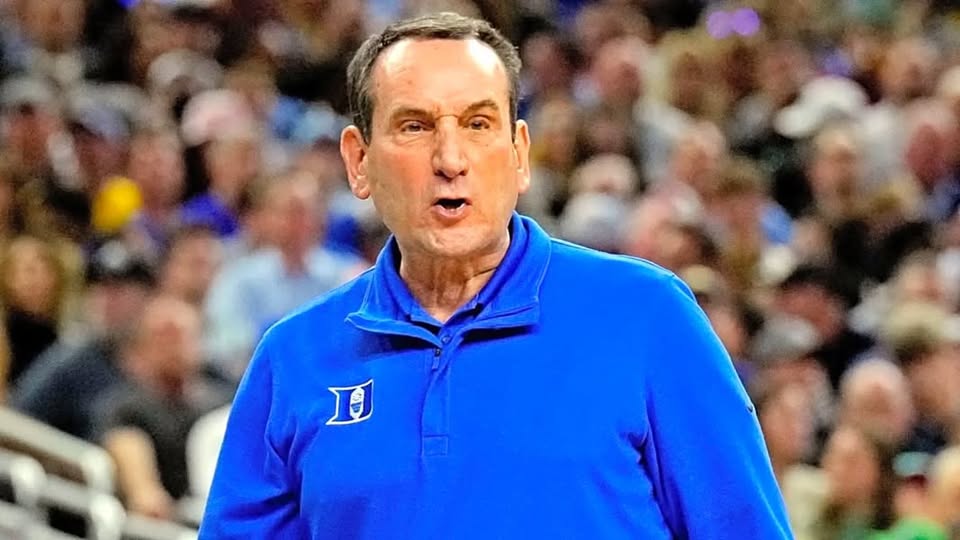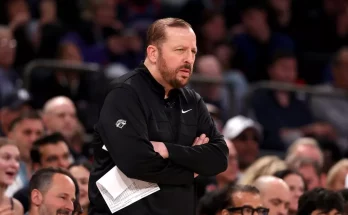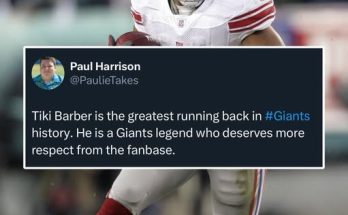In the rich and storied tradition of Duke University basketball, a legacy shaped by decades of excellence, legendary names have emerged—Christian Laettner, J.J. Redick, Shane Battier, Zion Williamson, and Kyrie Irving, to name a few. Yet, when the man most responsible for crafting Duke’s basketball empire was asked to name the greatest player in program history, his answer was swift and firm.
Without a moment’s hesitation, Mike Krzyzewski—reverently known as Coach K—declared: “Grant Hill is the greatest player in Duke basketball history.”
Those words, delivered during a recent interview, instantly reignited passionate debates among fans, media, and former players. But for Krzyzewski, who coached Duke for 42 seasons, five national championships, and more than 1,200 wins, the answer was simple. And more importantly, it was personal.
The Hilltop: Why Grant Hill Stands Tall
Coach K’s pick of Grant Hill might surprise some, particularly fans who focus on the raw statistical brilliance of other Blue Devil greats. But Hill’s greatness transcends numbers. For Krzyzewski, Hill embodied everything Duke basketball stood for—unparalleled versatility, intelligence, leadership, humility, and a tireless commitment to winning.
“Grant was a positionless player before that even became a thing,” Krzyzewski said in the interview. “He could guard every position. He could play point, he could rebound like a center, and he was the ultimate teammate. He made everyone around him better.”
From 1990 to 1994, Grant Hill’s presence at Duke was transformative. In his four-year college career, he helped lead the Blue Devils to three national championship games and two national titles (1991 and 1992). He was the heart and soul of those teams, which many regard as some of the greatest in NCAA history.
The Numbers and the Moments
While Hill’s college statistics (14.9 points, 6.0 rebounds, 3.6 assists per game) may not immediately leap off the page, context is crucial. He played in an era when college stars often stayed all four years, sharing the ball and sacrificing individual glory for team success. On loaded Duke rosters featuring the likes of Laettner and Bobby Hurley early in his career, Hill was the Swiss Army knife.
He famously made the pass in the 1992 NCAA East Regional Final against Kentucky—the full-court, three-quarter baseball-style pass to Christian Laettner for the game-winning shot, a play immortalized as one of the greatest in college basketball history. But even in that moment, it was Hill’s precision and calm under pressure that made the miracle possible.
In 1994, as a senior and leader of a less star-studded team, Hill carried Duke to another title game. He averaged 17.4 points, 6.9 rebounds, and 5.2 assists that season, earning First-Team All-American honors and the ACC Player of the Year award. Despite falling short against Arkansas in the championship game, Hill’s individual performance—especially his ability to elevate the play of his teammates—solidified his legend.
Coach K’s Philosophy and the Definition of Greatness
To understand Coach K’s rationale, one must understand his philosophy. Krzyzewski never prioritized raw talent alone. Instead, he valued complete players—those who excelled on the court, in the classroom, and as human beings.
In Hill, Krzyzewski saw the full embodiment of that philosophy. A military kid raised by parents who instilled discipline, humility, and education, Hill arrived at Duke with immense talent but also with the maturity to grow into a leader.
“He had everything,” Krzyzewski said. “A coach’s dream. He was unselfish, hardworking, graceful, and brilliant. He could’ve left for the NBA after his sophomore year and been a top-five pick. But he stayed. He wanted to be great at Duke, not just great in the pros.”
Hill’s loyalty to the program and his development under Krzyzewski formed a bond that lasted far beyond college. They remained close friends and mutual admirers long after Hill’s retirement from the NBA and Krzyzewski’s departure from the sidelines.
Reactions and Respect
When Coach K’s comments surfaced, the basketball community lit up with discussion. Christian Laettner, often considered the most accomplished player in Duke history with four Final Fours and two national titles, offered nothing but praise.
“I have no problem with it,” Laettner said. “Grant was a freak of nature. I played with him. I know what he could do. It’s hard to compare because we were all different players. But if Coach K says he’s the best, that’s good enough for me.”
J.J. Redick, Duke’s all-time leading scorer and one of the most polarizing yet prolific shooters in NCAA history, also chimed in during a podcast appearance. “Grant Hill was elegance and dominance at the same time. He made everything look easy. His impact was felt on every possession. That’s greatness.”
Even current NBA stars like LeBron James have acknowledged Hill’s influence. LeBron once said, “Before I watched Jordan, I watched Grant Hill. He was smooth, he could do it all. He was ahead of his time.”
The NBA ‘What If’ and the Legacy Still Cemented
Hill’s professional career, while respected, is often marked by one of the greatest “what if” narratives in sports history. He was sensational out of the gate, co-Rookie of the Year with Jason Kidd in 1995, and a seven-time NBA All-Star. He was often compared to legends like Scottie Pippen and even Michael Jordan early in his career.
But devastating ankle injuries robbed him of what could have been a Hall of Fame career of even greater magnitude. Despite these setbacks, Hill still carved out an 18-year NBA career, finishing with over 17,000 points and the respect of the league.
His resilience, class, and professionalism through years of surgeries and comebacks only deepened the appreciation for what he represented—not just as an athlete, but as a man.
Duke’s Culture Keeper
Even beyond the stats and banners, what Grant Hill gave to Duke was culture. He represented what the program was striving to be in its golden era—a team of scholars and ballers, warriors on the court and ambassadors off of it.
Hill’s impact remains felt at Duke. He’s a mentor to current players, a role model for alumni, and a bridge between generations of Blue Devils. In 2014, he was named to the National Basketball Hall of Fame, and in 2020, he was tapped as managing director of USA Basketball’s men’s national team, succeeding none other than Jerry Colangelo.
Krzyzewski himself once said, “If I had to show someone what Duke Basketball is, I’d show them Grant Hill.”
The Final Word
In the ever-competitive world of sports, “greatest of all time” debates will never cease. And in a program like Duke’s—littered with All-Americans, NBA superstars, and national champions—it’s a question with no universally accepted answer.
But for the man who built the house of Duke Basketball brick by brick, whose office oversaw generations of stars, whose word is gospel in Durham, the answer is clear.
“Grant Hill is the greatest player in Duke history,” Coach K said, “and I’d pick him again a hundred times over.”
That’s more than an endorsement. That’s canon.
Honoring a Blueprint
In a way, Krzyzewski’s declaration wasn’t just about basketball ability. It was about leadership, character, longevity, and grace—qualities that defined Hill not only as a player but as a person. Grant Hill didn’t just play for Duke. He was Duke.
For every young Blue Devil who puts on the jersey, that’s the standard now. Not just to win games or fill up the box score. But to represent the program with the same unwavering dignity and unselfish spirit that led the greatest coach in college basketball history to utter his name without hesitation.
And for Duke fans, there’s something poetic in that. Because in a world that often measures greatness in points and trophies, Krzyzewski reminded us that the truest form of greatness is sometimes found in the immeasurable. In how you carry yourself. In how you lead. In how you lift those around you.



